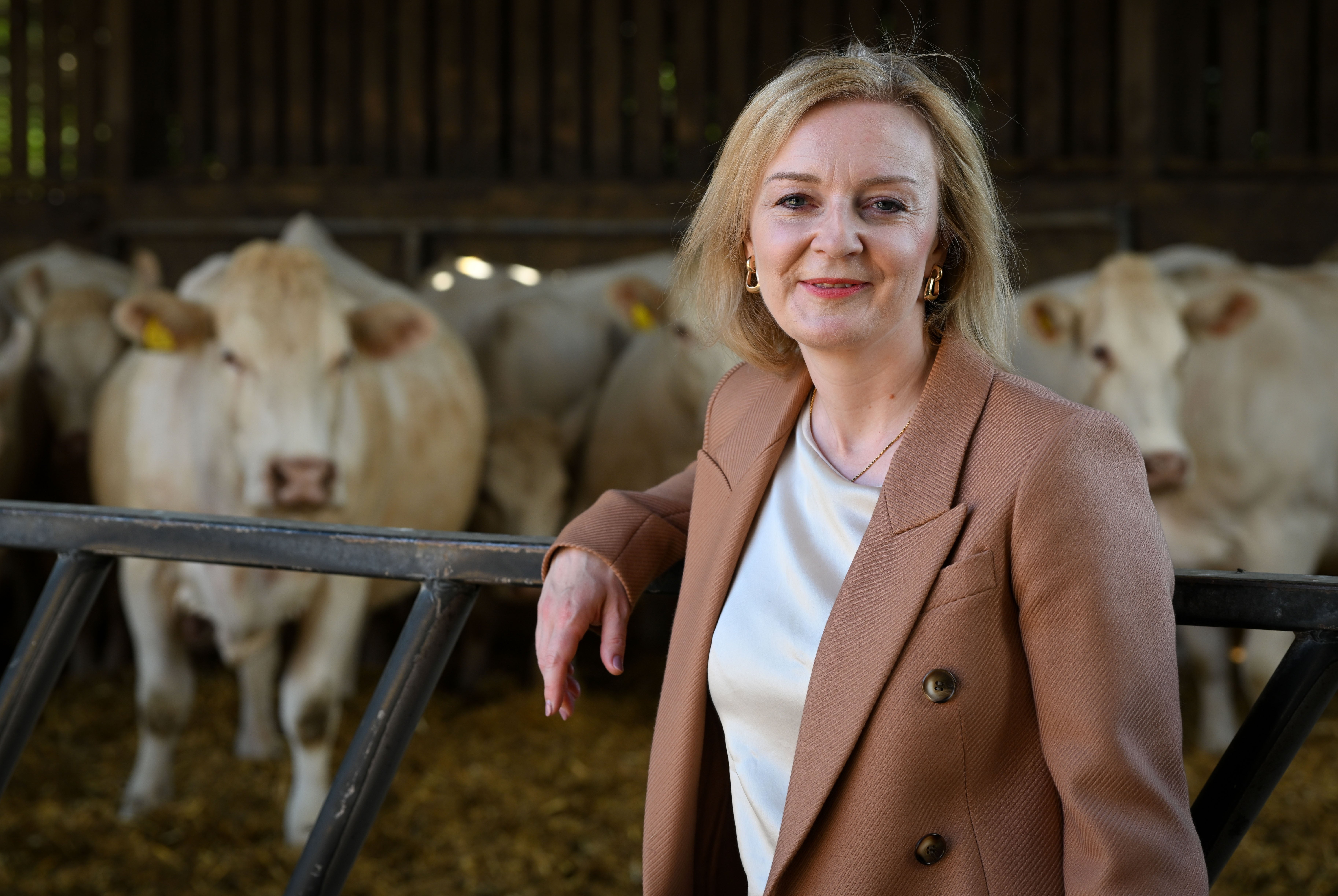Truss U-turn on regional pay for public sector workers: how it happened
Details of the plan to slash £8.8 billion were unveiled in a press release on Monday but scrapped on Tuesday.

Your support helps us to tell the story
From reproductive rights to climate change to Big Tech, The Independent is on the ground when the story is developing. Whether it's investigating the financials of Elon Musk's pro-Trump PAC or producing our latest documentary, 'The A Word', which shines a light on the American women fighting for reproductive rights, we know how important it is to parse out the facts from the messaging.
At such a critical moment in US history, we need reporters on the ground. Your donation allows us to keep sending journalists to speak to both sides of the story.
The Independent is trusted by Americans across the entire political spectrum. And unlike many other quality news outlets, we choose not to lock Americans out of our reporting and analysis with paywalls. We believe quality journalism should be available to everyone, paid for by those who can afford it.
Your support makes all the difference.Liz Truss’s campaign to be the next Conservative Party leader suffered a setback after a U-turn over an £8.8 billion policy pledge.
Her campaign team blamed “wilful misrepresentation” of a plan to replace national pay deals for public sector workers with regional ones, something which would ultimately see nurses, teachers and civil servants outside London and the South East being paid less than their counterparts.
Allies insisted that “current pay levels” would be maintained and the policy would only apply to new contracts, but the Foreign Secretary’s own campaign’s press release set out in black and white that the promised £8.8 billion annual saving relied on the regional plan being adopted across the public sector in the long term.
So what was the plan and why was it abandoned?
– How was the plan announced?
A press release sent to journalists on Monday set out Ms Truss’s plans to save £11 billion a year through a “war on Whitehall waste”.
The initial release said: “Truss’s government will save up to £8.8 billion a year by replacing national pay boards with regional pay boards.
“This will make it easier to adjust officials’ pay, ensuring it accurately reflects where they work and stops the crowding out of local businesses that cannot compete with public sector pay.”
An updated version of the press release gave further details – this would “only apply to new contracts”, and there would be a “phased approach” which would only be extended if “it can be shown to deliver through its rollout in the Civil Service via new contracts and the creation of boards”.
But ultimately “this could save up to £8.8 billion per year”, the release said, adding: “This is the potential savings if the system were to be adopted for all public sector workers in the long term.”
– What did Liz Truss say about the plan?
She promised a “leaner, more efficient” Whitehall, adding: “I have shown in my time in Government that I’m prepared to take on the Whitehall orthodoxy and get things done.”
– What was the reaction?
Unions, Tory opponents and Labour all lined up to condemn the proposals.
The Institute for Government’s Alex Thomas said the scale of the savings promised by Ms Truss meant “this isn’t mandarins moving from London, it’s nurse, teacher pay being adjusted down”.
“Less war on Whitehall, more war on Workington,” he added.
Ben Houchen, the Rishi Sunak-supporting Tory mayor for Tees Valley, said he was “absolutely speechless” and “there is simply no way you can do this without a massive pay cut for 5.5 million people, including nurses, police officers and our armed forces outside London”.
– So what happened to the plan?
A spokeswoman for the Truss campaign announced on Tuesday that the plan had been scrapped, a little over 13 hours after it had been published.
“Over the last few hours there has been a wilful misrepresentation of our campaign,” the spokeswoman complained.
“Current levels of public sector pay will absolutely be maintained.
“Anything to suggest otherwise is simply wrong.
“Our hard-working frontline staff are the bedrock of society and there will be no proposal taken forward on regional pay boards for civil servants or public sector workers.”
– So what next?
There is now an £8.8 billion hole in Ms Truss’s financial plans and the U-turn could damage her campaign.
The Cabinet minister and her allies had seized on Mr Sunak’s change of course over taxation, accusing him of “flip-flopping” and performing a “screeching U-turn” over his pledge to axe VAT on fuel bills – attacks that will be harder to maintain given the events of Tuesday.
It is also a problem for supporters who had likened Ms Truss to former Conservative prime miniser Margaret Thatcher, including Treasury Chief Secretary Simon Clarke, who responded to Mr Sunak’s policy shift by saying: “U-turn if you want to. The lady’s not for turning.”
A source in the Sunak camp said “this wasn’t a mistake” as Ms Truss had argued for regional pay in 2018, adding: “The lady is for turning.”
Mr Houchen suggested “this could be Liz’s dementia tax moment” – a reference to the policy U-turn which derailed Theresa May’s 2017 election campaign.